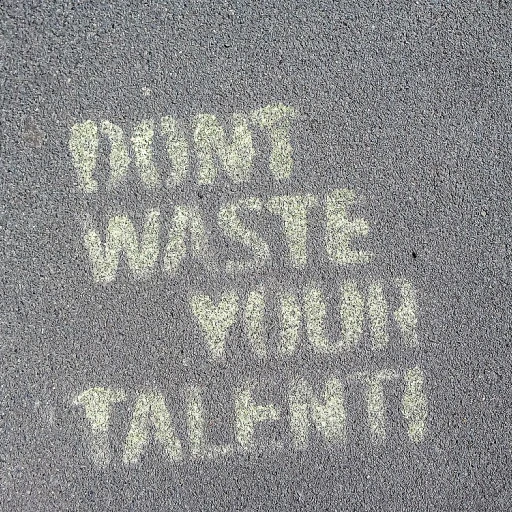Understanding Self-Checking
Introducing the Concept of Self-Background Checks
The growing emphasis on personal accountability and self-improvement reveals why the activity of self-background checks is gaining traction. In an age where digital footprints and transparency play a significant role in both personal and professional arenas, individuals increasingly feel the need to monitor their own backgrounds in order to avoid potential pitfalls when seeking employment or engaging in social interactions. Taking charge with self-checking is more than just an activity, it’s a proactive stance in a world where misinformation and privacy concerns abound. Especially for students entering the workforce, understanding the nuances of background checks can be part of their learning curve. This self-regulation can enhance their self-monitoring abilities, aligning with core concepts like self-improvement and transparency. The practice of doing a self-check can sometimes be as straightforward as a student reviewing their math test using task cards to ensure the correct order of operations. Just like these educational activities require a careful check of answers and grades to foster a deeper understanding, self-background checks provide instant feedback and accurate information. In a sense, it’s a self-monitoring mechanism akin to digital checking activities that students engage with in middle school for better learning outcomes. It’s worth noting that self-checking is not just about looking back; it also prepares individuals for future needs. From self-created Google Sheets that track digital activities to self-checking math activities, the practice encourages a mindset of proactive personal development. Delving into these background checking activities can help individuals better navigate the complexities of modern social and professional landscapes. Explore more about whether pending charges appear on background checks, enhancing your understanding of what may surface during such assessments and the implications it holds for personal and professional growth.Benefits of Self-Checking
Why Prioritize Personal Background Verification?
Understanding the importance of self-checking is just the beginning. Embracing the benefits of self-monitoring can significantly influence one's life in various domains.- Informed Self-Awareness: Knowing what shows up about you in a background check is empowering. Whether you're a student preparing for college or a professional seeking a new job, having a comprehensive understanding of your past activities enhances self-regulation.
- Avoiding Surprises: Imagine applying for a job and being unaware of a minor issue on your record that leads to uncomfortable questions. By self-checking, you preempt such situations, ensuring that any discrepancies in your history, such as a math test you didn't grade, are corrected.
- Enhancing Employment Potential: Many companies are increasingly using self-checking as a benchmark for self-sufficiency. When students self-regulate their online behavior, it indicates a proactive and responsible approach that's attractive to employers.
- Real-Time Validation: With digital tools like Google Sheets and self-checking platforms, instant feedback on your data can streamline correction processes. These tools facilitate not only academic self-checking in subjects like math but also employment records, ensuring the activities created reflect your genuine capabilities.
- Proactive Learning: Employing task cards for various self-checking activities can bolster your abilities in order operations and provide immediate learning scope about your strengths and weaknesses across digital checks.
- Legal and Financial Security: Understanding the key components of fraud in background checks is vital. Protecting yourself against identity theft and ensuring that your digital records are accurate safeguards your reputation, financial health, and personal freedom. For more insights into avoiding fraud in background checks, visit this comprehensive guide.
Tools and Platforms for Self-Checking
Exploring Tools and Platforms for Personal Insight
Engaging in self-checking involves leveraging various tools to gain insights about oneself. This process can enrich our understanding of how personal data is perceived by others, including potential employers and educational institutions. With digital advancements, numerous platforms have emerged as valuable aids in this process. In the realm of education, self-checking is increasingly becoming relevant. Students, particularly those in middle school, benefit from using self-monitoring tools to track their academic progress. Interactive digital platforms, like Google Sheets, allow students to organize their study plans effectively, offering instant feedback on tasks, including math tests and grade activities. Tools such as order of operations task cards and math activity worksheets are also popular, as they offer students a way to evaluate their work against the correct answers. Beyond academics, several digital platforms facilitate self-background checks for individuals aiming to understand their personal data footprint. Many online services provide comprehensive reports summarizing public records, social media activity, and more. These self-checking activities can help individuals prepare answers to questions they might face in job interviews, promoting self-regulation and reflection. However, it's crucial to stay informed about the potential challenges of self-checks. Not all platforms are created equal, and it’s essential to choose reliable partners. By understanding the nuances of personal background checks, users can navigate their professional and social interactions with greater ease. For those interested in a deeper dive into navigating the employment landscape, this blog post sheds light on relevant legislation such as the New York Fair Chance Act. In summation, the expanding array of tools and platforms aim to simplify the self-checking process, ensuring that individuals are better equipped to present their best selves to the world.Challenges in Self-Checking
Overcoming Hurdles in Personal Background Checks
Performing a personal background check is not without its challenges. Although the practice offers numerous benefits, as previously discussed, there are several obstacles that individuals might encounter along the way. Firstly, accessing accurate information can be a significant challenge. Despite the vast array of tools and platforms available, ensuring that the data gathered is both correct and up-to-date is essential. Misleading or outdated information can lead to incorrect conclusions about one's background, which is particularly detrimental for students and professionals alike as they prepare to transition into new opportunities or environments. The complexity and sensitivity of personal information pose an additional hurdle. Handling one's data requires a level of self-regulation and digital literacy that involves understanding privacy settings and the potential repercussions of sharing personal details online. The multitude of platforms and tools created for self-checking, including digital activities and google sheets-based systems, can vary widely in terms of user-friendliness and reliability. Learners, educators, and parents need to stay informed about suitable resources that offer both accuracy and protection of personal data. Another common issue is the interpretation of the results. Knowing how to interpret the data correctly is crucial for making informed decisions about personal and professional growth. With various components such as credit scores, criminal history, and educational credentials involved, understanding what each part signifies and how it may impact future endeavors, whether it's a math test for students or a vital work-related activity, can often require expert guidance. Finally, cost can sometimes be a barrier, especially for students and entry-level professionals who may not have the financial capacity to invest in comprehensive background check services. Ensuring equitable access to information and tools that can aid in self-monitoring is crucial to leveraging the full potential of personal background checks. Addressing these challenges is an essential step in maximizing the benefits of self-checking. By learning more about the obstacles that might arise, individuals can better prepare themselves and engage in proactive activities that effectively enhance their personal and professional journeys.Impact on Employment and Social Interactions
Influence on Job Prospects and Social Dynamics
In today’s competitive job market, the practice of self-checking has become increasingly significant. By engaging in self-monitoring, individuals can proactively manage their digital footprint and ensure that their online presence aligns with their professional aspirations. This is particularly crucial for students transitioning into the workforce. As they prepare to enter middle school or higher education, self-checking activities can aid in maintaining a clean and professional digital profile.
Employers are increasingly utilizing background checks to vet potential candidates. Therefore, a self-checking activity can be a strategic move for job seekers. By regularly conducting a self-check, individuals can identify and address any discrepancies or negative information that might appear in a background check. This proactive approach can significantly enhance a candidate's appeal to potential employers, who often value transparency and self-regulation.
Beyond employment, self-checking also plays a role in social interactions. In a world where digital interactions are commonplace, maintaining a positive online presence is essential. Self-checking tools can provide instant feedback on how one's digital persona is perceived, allowing individuals to make necessary adjustments. This is particularly beneficial for students, who are often engaged in social media activities. By learning to self-check, students can cultivate a digital presence that reflects their personal values and aspirations.
Moreover, the rise of digital tools like Google Sheets and self-checking math activities has facilitated a more structured approach to self-monitoring. These tools offer a systematic way to track and evaluate personal data, helping individuals to stay organized and informed. For instance, task cards and digital math tests can provide a self-checking mechanism for academic performance, allowing students to receive instant feedback and correct errors in real-time.
In summary, the impact of self-checking on employment and social interactions is profound. By adopting self-checking practices, individuals can better navigate the complexities of modern life, ensuring they present their best selves in both professional and personal contexts.










